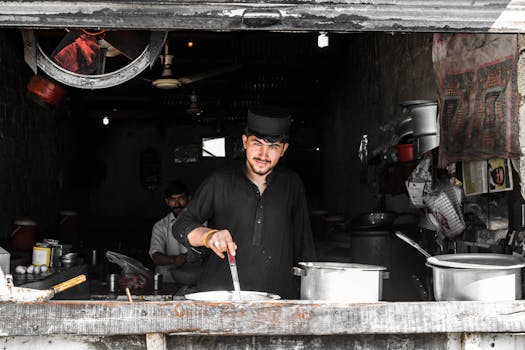Chef Mentorship Programs: Passing Down Culinary Traditions
When it comes to the culinary world, traditional cooking techniques and recipes hold a significant amount of value. They represent the unique flavors and cultural heritage of different regions and communities. However, with the constantly evolving food industry, these traditions are at risk of being lost. That’s where chef mentorship programs come into play. These programs not only preserve the rich culinary traditions but also pass them down to the next generation of chefs. In this article, we’ll delve into the importance of chef mentorship programs and how they contribute to passing down culinary traditions.
The Essence of Chef Mentorship Programs
Chef mentorship programs are structured learning experiences for aspiring chefs who want to develop their culinary skills and knowledge under the guidance of experienced chefs. These programs offer a hands-on approach to learning, allowing participants to work alongside their mentors and learn from their expertise. Unlike traditional culinary schools, mentorship programs give aspiring chefs the opportunity to learn from industry leaders and gain practical knowledge that can’t be taught in a classroom setting.
Preserving Culinary Traditions
One of the significant benefits of chef mentorship programs is their role in preserving culinary traditions. Many traditional cooking techniques and recipes are being forgotten as modern cooking methods gain popularity. By working closely with experienced chefs, aspiring chefs can learn and master these traditional techniques, ensuring their continuation for future generations.
Mentorship programs also provide a platform for seasoned chefs to share their cultural heritage and pass down their family’s traditional recipes. This not only supports cultural diversity but also adds depth and authenticity to the culinary world.
Hands-on Learning and Real-world Experience
Unlike traditional culinary schools, mentorship programs offer hands-on learning experience. With access to a professional kitchen and guidance from experienced chefs, participants get to work with real ingredients and equipment. This type of practical learning allows for a deeper understanding of cooking techniques and cultivates problem-solving skills that are essential in the fast-paced culinary industry.
Moreover, working with mentors in a professional setting also exposes participants to the realities of the culinary world. This includes long hours, high-pressure situations, and the demands of working in a kitchen. By experiencing these challenges firsthand, aspiring chefs gain a better understanding of what it takes to succeed in the culinary industry.
Impact on Future Generations
Chef mentorship programs not only preserve traditional cooking techniques and recipes, but they also impact future generations of chefs. By passing down their knowledge and expertise, experienced chefs play a crucial role in shaping the next generation of culinary professionals. These programs instill a sense of pride and appreciation in younger chefs for their cultural heritage, encouraging them to carry on these traditions and celebrate their uniqueness.
Additionally, mentorship programs offer a platform for aspiring chefs to build networks and connections with industry leaders. This can open doors to various job opportunities and collaborations, further fostering the growth and development of the culinary industry.
The Bottom Line
In conclusion, chef mentorship programs hold significant importance in preserving and passing down culinary traditions. These programs not only provide hands-on learning and practical experience but also have a lasting impact on future generations of chefs. As we continue to embrace the ever-changing food industry, it’s crucial to remember and honor the rich cultural heritage that lies in traditional cooking techniques and recipes. Chef mentorship programs serve as a bridge between the past and the future of the culinary world, ensuring that these traditions live on for generations to come.











